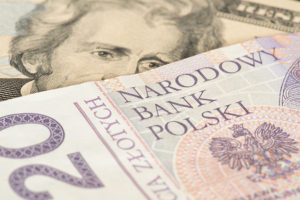Cart review: USDJPY currency pair
The USDJPY currency pair has a low spread and exceptional liquidity. Due to these features, this pair seems great for first-time Forex traders. He is also a favorite of the more experienced. Due to the fact that the Forex market is available 24 hours a day, traders who prefer to trade at night should pay attention to USDJPY. Trading on yen-related pairs is very attractive during business hours in Asia.
There are many investment strategies on USDJPY
The price of the yen depends to a large extent on the condition of global financial markets. Investors most often choose the yen when market volatility is relatively low. As this increases, the yen trade tends to decrease in popularity. Trading the yen is very popular in Forex during relatively calm periods. As global market volatility increases, interest in the yen diminishes.
Another important factor is the Japanese relationship between imports and exports. Japan is heavily dependent on imported oil and other natural resources. Rising commodity prices usually hurt the Japanese economy and depreciate the yen. The slower growth of the economy of Japan's major trading partners also makes the Japanese economy dependent on exports and thus weakens the yen. The dependence of Japanese exports can also lead to central bank intervention when the yen shows too much strength. While economists sometimes discuss the effectiveness of central bank intervention, it is important to consider what impact it might have.
Bank of Japan
The Bank of Japan is a very important player on Forex market. When fluctuations in the price of the yen can threaten Japanese exports or economic growth, it intervenes in the Forex market. Forex traders should be fully aware of this so as not to be surprised when the intervention of the Bank of Japan causes the yen to change its trend. As the most liquid currency in Asia, the Japanese yen is also used as a kind of indicator for all of Asia's economic growth.
During economic or financial volatility in Asia, investors buy or sell the yen as a hedge against other Asian currencies. These are usually less liquid and less popular and therefore more difficult to trade. Finally, it is worth remembering that Japan has shown little economic growth for a very long time Bank of Japan keeps interest rates very low. Forex traders should pay close attention to the future path of Japan's economic development. The eventual economic recovery could bring about a decline in the popularity of yen trading as interest rates rise, and therefore automatically higher levels for the Japanese yen.
Japanese Yen
The economy of Japan is the leading economy in Asia and the second largest national economy in the world. Japan is the main exporter in the world. Trade with the United States, Europe, Asia and other countries is very high. As a result, multinationals have a constant need to convert their local currency into Japanese yen and vice versa.
The Japanese Yen is the most popular currency in Asia and the fourth most popular currency in the world. In 1980, some analysts decided that the yen would one day join the US dollar as one of the world's reserve currencies. However, the very long Japanese economy put an end to these hopes, at least temporarily. Despite this, the yen remains an extremely important currency in global financial markets.
The underlying cause of Japan's long slowing economic growth is that the Japanese Central Bank was forced to keep interest rates very low to support economic growth. Low interest rates have played a big role in keeping the yen lower than it might be. Consistently low interest rates in Japan have made the yen a popular currency also traded in the Forex market and for this reason, among other things, the currency pair USDJPY has a strong position in the Forex market.
Economy of Japan
A relatively small country in terms of size, rich in little natural resources, Japan has opted for new technologies, strong professional ethics, innovative production techniques, a high interest rate of savings and a close partnership between the Japanese government and the business sector to overcome its natural imperfections.
Although the country and its economy were severely damaged during World War II, the Japanese economy grew quickly. It quickly became the second economy in the world after the United States. However, after more than 40 years of remarkable economic growth, the early 1990s marked the end of the Japanese bull market in the Japanese stock exchange and real estate sector. The bursting of the bubble led to a rapid economic slowdown and a deflationary spiral. The Japanese banking system was indebted to more than a trillion yen and consequently limited its lending activities.
Japanese consumer spending has also dropped dramatically as the country entered a prolonged recession. For two decades, the Japanese government has sought to revive the economy and return growth to previous solid levels. Despite efforts that are still not successful, it cannot be denied that Japan has become an economic powerhouse. It is still an important economic player nowadays.






















![Forex Club – Tax 9 – Settle tax on a foreign broker [Download the Application] Forex Club - Tax 9](https://forexclub.pl/wp-content/uploads/2024/02/Forex-Club-Podatek-9-184x120.jpg?v=1709046278)
![Trading View platform – solutions tailored to the needs of traders [Review] trading view review](https://forexclub.pl/wp-content/uploads/2024/03/trading-view-recenzja-184x120.jpg?v=1709558918)
![How to connect your FP Markets account to the Trading View platform [Guide] fp markets trading view](https://forexclub.pl/wp-content/uploads/2024/02/fp-markets-trading-view-184x120.jpg?v=1708677291)
![How to invest in ChatGPT and AI? Stocks and ETFs [Guide] how to invest in chatgpt and artificial intelligence](https://forexclub.pl/wp-content/uploads/2023/02/jak-inwestowac-w-chatgpt-i-sztuczna-inteligencje-184x120.jpg?v=1676364263)



![Izabela Górecka – “Success on the market depends not only on knowledge, but also on emotional stability” [Interview] Izabela Górecka - interview](https://forexclub.pl/wp-content/uploads/2024/04/Izabela-Gorecka-wywiad-184x120.jpg?v=1713870578)
![WeWork – the anatomy of the collapse of a company valued at $47 billion [WeWork, part II] wework bankruptcy story](https://forexclub.pl/wp-content/uploads/2024/04/wework-bankructwo-historia-184x120.jpg?v=1711729561)
![Adam Neumann – the man who screwed up Softbank [WeWork, part AND] adam neumann wework](https://forexclub.pl/wp-content/uploads/2024/04/adam-neumann-wework-184x120.jpg?v=1711728724)





![The most common mistakes of a beginner trader - Mr Yogi [VIDEO] Scalping - The most common mistakes of a beginner trader - VIDEO](https://forexclub.pl/wp-content/uploads/2024/03/Scalping-Najczestsze-bledy-poczatkujacego-tradera-VIDEO-184x120.jpg?v=1711601376)
![Learning patience: No position is also a position - Mr Yogi [VIDEO] Scalping - Learning patience - No position is also a position - VIDEO](https://forexclub.pl/wp-content/uploads/2024/03/Scalping-Nauka-cierpliwosci-Brak-pozycji-to-tez-pozycja-VIDEO-184x120.jpg?v=1710999249)
![When to exit a position and how to minimize losses - Mr Yogi [VIDEO] Scalping - When to exit a position and how to minimize losses - VIDEO](https://forexclub.pl/wp-content/uploads/2024/03/Scalping-Kiedy-wyjsc-z-pozycji-i-jak-minimalizowac-straty-VIDEO-184x120.jpg?v=1710336731)


















